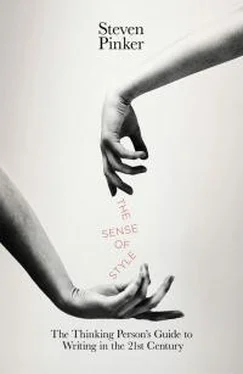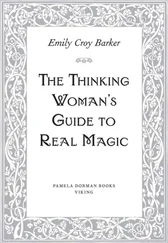The decision of whether to recast a sentence to align its subject with the subject of a modifier is a matter of judgment, not grammar. A thoughtlessly placed dangler can confuse the reader or slow her down, and occasionally it can lure her into a ludicrous interpretation. Also, even if a dangler is in no danger of being misinterpreted, enough readers have trained themselves to spot danglers that a writer who leaves it incurs the risk of being judged as slovenly. So in formal styles it’s not a bad idea to keep an eye open for them and to correct the obtrusive ones.
fused participles (possessives with gerunds).Do you have a problem with the sentence She approved of Sheila taking the job ? Do you insist that it should be She approved of Sheila’s taking the job, in which the gerund ( taking ) has a subject ( Sheila’s ) that is marked with genitive case? Perhaps you think that the first version, the one with the unmarked subject, is an increasingly common symptom of grammatical laziness. If so, you are a victim of the spurious rule about so-called fused participles. (The term was coined by Fowler to suggest that the participle taking has been illicitly fused with the noun Sheila into the mongrel Sheila-taking: the theory made little sense, but the term stuck.) In fact, gerunds with unmarked subjects were the historically earlier form, have long been used by the language’s best writers, and are perfectly idiomatic. Unfusing a participle can make a sentence clumsy or pretentious: 12
Any alleged evils of capitalism are simply the result of people’s being free to choose.
The police had no record of my car’s having been towed.
I don’t like the delays caused by my computer’s being underpowered.
The ladies will pardon my mouth’s being full.
And often it cannot be done at all:
I was annoyed by the people behind me in line’s being served first.
You can’t visit them without Ethel’s pulling out pictures of her grandchildren.
What she objects to is men’s making more money than women for the same work.
Imagine a child with an ear infection who cannot get penicillin’s losing his hearing.
In these cases, dropping the ’s results in a perfectly acceptable sentence: I was annoyed by the people behind me in line being served first. A substantial majority of the AHD Usage Panel accept the so-called fused participle, not just in these complicated sentences but in simple ones like I can understand him not wanting to go . For sentences that have been repeated verbatim in questionnaires over the decades, the rate of acceptance has increased over time.
How should a writer choose? Any semantic difference between the alternatives is elusive, and the choice mainly hinges on style: the genitive subject ( I approve of Sheila’s taking the job ) is appropriate in more formal writing, the unmarked subject ( I approve of Sheila taking the job ) in informal writing and speech. The nature of the grammatical subject matters, too. The clumsy examples above show that long and complicated subjects are best left unmarked, whereas simpler ones like pronouns work well in the genitive, as in I appreciate your coming over to help . Some writers sense a subtle distinction in the focus of attention. When the focus is on the entire event, packaged into a conceptual whole, the genitive subject seems better: if the fact that Sheila is taking the job had been mentioned previously, and we were all discussing whether this was a good thing or a bad thing (not just for Sheila but for the company, her friends, and her family), I might say I approve of Sheila’s taking the job. But if the focus is on the subject and her possible courses of action, say, if I was a friend of Sheila’s and had been advising her whether to stay in school or accept the offer, I might say I approve of Sheila taking the job.
if-then . Something is slightly off in these sentences, but what?
If I didn’t have my seat belt on, I’d be dead.
If he didn’t come to America, our team never would have won the championship.
If only she would have listened to me, this would never have happened.
Many conditional constructions (those with an if and a then ) seem bewilderingly picky about which tenses, moods, and auxiliaries may go into them, particularly had and would . Fortunately, there is a formula for writing graceful conditionals, and it becomes clear once you recognize two distinctions.
The first is that English has two kinds of conditional constructions: 13
If you leave now, you will get there on time. [an open conditional]
If you left now, you would get there on time. [a remote conditional]
The first is called an open conditional, from the expression “an open possibility.” It refers to a situation that the writer is uncertain about, and it invites the reader to draw inferences or make predictions about that situation. Here are a couple of other examples:
If he is here, he’ll be in the kitchen.
If it rains tomorrow, the picnic will be canceled.
With these conditionals, anything goes: you can use pretty much any tense in the if and then clauses, depending only on when the relevant events take place or are discovered.
The second kind is called a remote conditional, from the expression “a remote possibility.” It refers to a counterfactual, highly improbable, blue-sky, or make-believe world, one that the writer thinks is unlikely to be true but whose implications are worth exploring:
If I were a rich man, I wouldn’t have to work hard.
If pigs had wings, they would fly.
Remote conditionals are the finicky ones, though their demands, as we shall see, are not as arbitrary as they at first seem. The formula is that the if- clause must have a past-tense verb, and the then- clause must contain would or a similar auxiliary such as could, should, or might . If we take a typical double- would conditional (left side) and put the if- clause into the past tense, it instantly sounds classier:
If only she would have listened to me, this would never have happened.
If only she had listened to me, this would never have happened.
The problem with the left-hand version is that would have does not belong in the if- clause, only in the then- clause. The job of the conditional would is to explain what ought to happen in the make-believe world; it does not set up that world, a task that is reserved for the if- clause and its past-tense verb. By the way, this is true for counterfactuals in general, not just for ones that are found in if-then constructions. Doesn’t the right-hand version in this pair sound better?
I wish you would have told me about this sooner.
I wish you had told me about this sooner.
Now here’s the rationale behind the formula. When I said that the if- clause must be in the past tense, I did not mean that it refers to a past time . “Past tense” is a grammatical term referring to one of the forms an English verb can take, namely the verb plus – ed , or, in the case of irregular verbs, some variant such as make-made, sell-sold, or bring-brought. “Past time,” in contrast, is a semantic concept referring to an event that took place before the moment of speaking or writing. In English, a past-tense form is typically used to refer to past time, but it can also be used with a second meaning, factual remoteness. That’s the meaning it’s expressing in the if- clause. Consider the sentence If you left tomorrow, you’d save a lot of money. The verb left couldn’t possibly refer to an event in the past: the sentence says “tomorrow.” But the past-tense form is fine, because it refers to a hypothetical (factually remote) event.
Читать дальше












